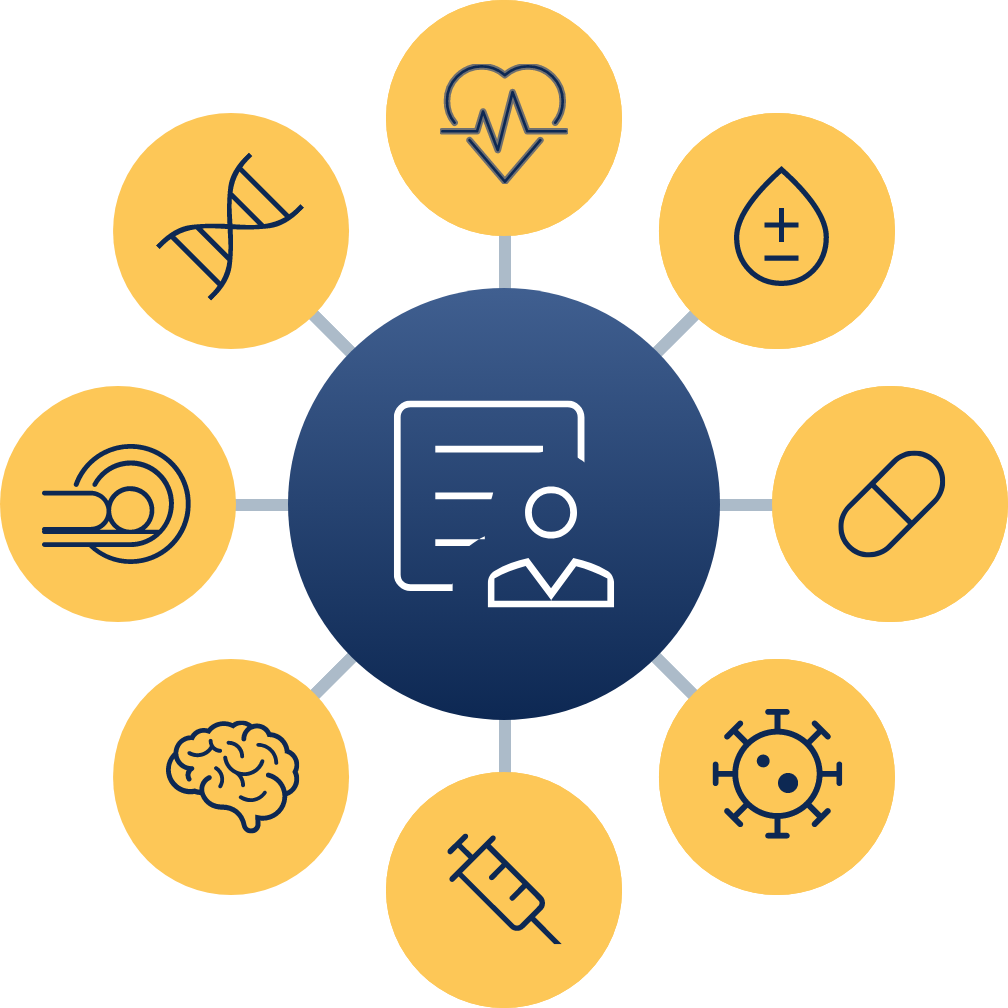What are EHRs?
Electronic health records (EHRs) are digital versions of patients’ medical records.
Each time you get healthcare, your doctor and other providers enter information into your EHR, including:
- Personal information such as your age, sex, and race
- Current and past health problems and symptoms
- Test results
- Medicines and treatments
RECOVER researchers can link data across the United States from different EHRs used by healthcare providers, hospitals, and other medical facilities. They can also link with other data sources, like vaccine records, to get a more complete picture of COVID and Long COVID in the real world.














